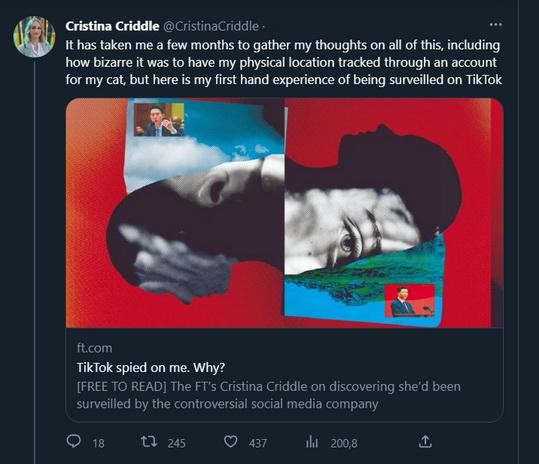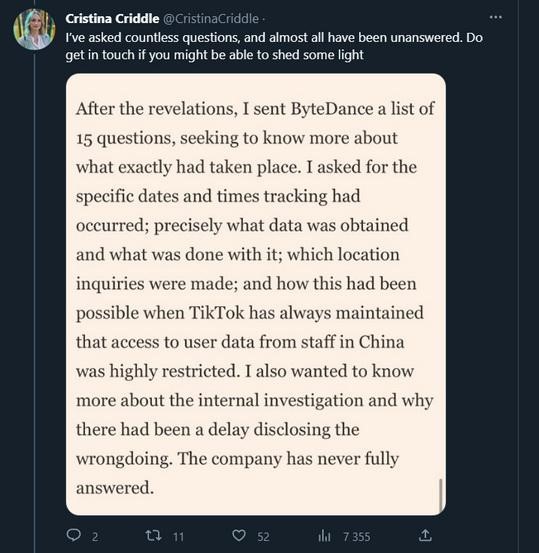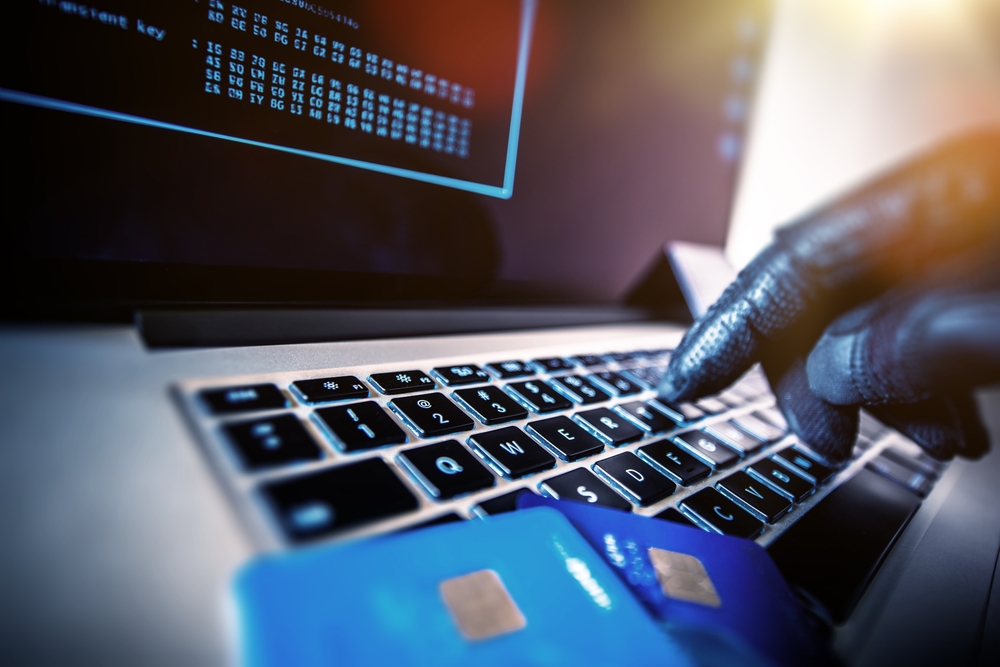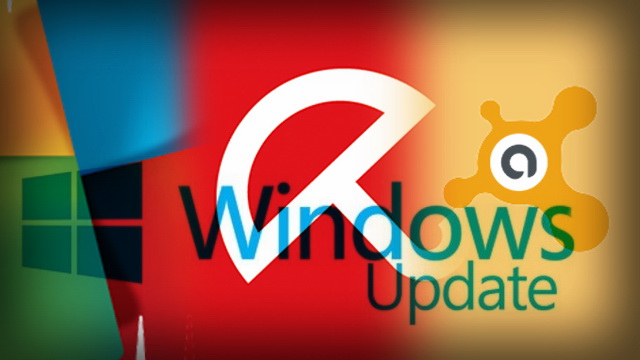ByteDance Staff Tracked Financial Times Journalist through Her Cat’s Account
Employee of ByteDance, which owns TikTok, tracked Financial Times journalist Cristina Criddle as she covered the company.
Since Criddle did not have a personal social media account, ByteDance tracked her cat Buffy’s account.Let me remind you that we also said that Spyware Developers Ready to hack iOS and Android for 8 million euros, and also that Attackers infected iPhones of American diplomats with NSO Group spyware.
The media also wrote that The FBI Disrupted the Cyberspyware “Snake” that the Russian FSB Used for 20 Years.
Criddle spoke about the incident in a separate article, where she detailed how TikTok representatives admitted that they tracked her location, trying to identify the source of information leaks within the company.



Criddle says that in December 2022, just before the holidays, she received a call from TikTok’s public relations director saying she was one of two journalists whom ByteDance employees followed. The company admitted to tracking the location of members of the media, trying to find out if they met with ByteDance employees who may have been involved in the leak. And this tactic didn’t work.
Interestingly, at that time, Criddle was not engaged in ByteDance-related materials, and she did not have a personal TikTok account. But she has created an account for her cat Buffy, named after the vampire slayer from the TV series of the same name. The cat account had 170 followers and 20 posts.
Buffy reportedly left social media following the report of the surveillance, with Christina Criddle writing that Buffy is now “unfortunately no longer doing content”.

The journalist says that what happened was “frightening and terrible.” She clarifies that she used the TikTok account on a personal mobile device, but her name and occupation were not included in the account bio. That said, Criddle still hasn’t received a response from ByteDance about how long she’s been tracked.
Criddle says that even now, several months later, the anxiety caused by the news of surveillance keeps her up at night.
The fact that ByteDance was following unnamed American journalists covering the company’s activities became known at the end of last year.
At the time, ByteDance’s internal investigation revealed that several employees had accessed the TikTok accounts of at least two American journalists and a “small number” of others associated with them. In particular, the company was interested in the IP addresses of reporters to determine their approximate location and to understand if they were in the vicinity of TikTok employees who could leak internal data to the press.
At the time, in an email to employees that leaked to the media, ByteDance CEO Liang Rubo wrote that he was “deeply disappointed” and “the public trust that we have spent great effort to build will be visibly undermined by the misbehavior of a few people.”
In another internal letter, another TikTok director who reports to Liang, Show Chu, called the incident “ill-conceived actions by a few people.” In a third letter, the company’s general counsel, Erich Andersen, said that in response to the incident, the Internet audit and risk control group would be restructured.





